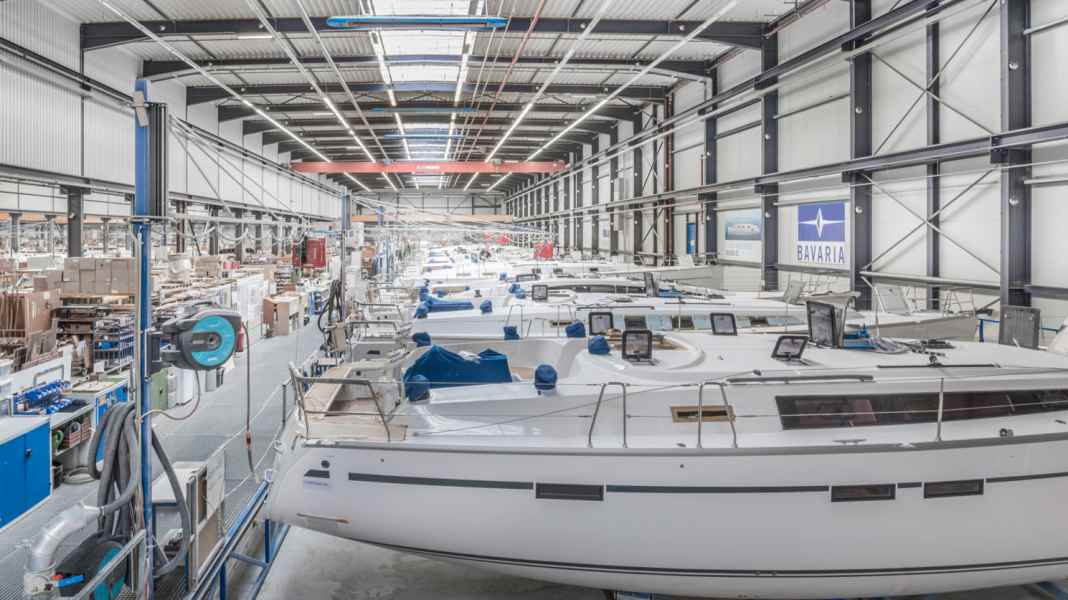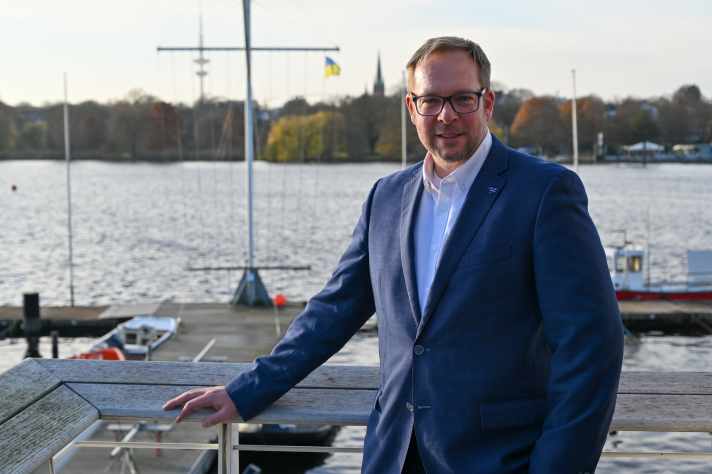
- Difficult situation for shipyards and charter companies
- Charter market: bad weather and economic situation
- Price explosion in Croatia due to euro changeover
- Boat trade particularly affected
- Improvement in sight
- boot Düsseldorf 2025: good booking situation
- Full order books and berths available again
- Conclusion: hoped-for boost for the water sports industry
The year is not yet over, but the 2024 season can already be ticked off. The charter bases inland and on the Baltic coast are closed and most of the boats are in winter storage. It's time to look back. However, reminiscing about the summer cruise is likely to evoke more pleasant feelings than looking at the economic situation in 2024, because just like the weak economy in Germany, where more and more companies are cutting jobs, sales in the water sports industry are also at a low level.
Difficult situation for shipyards and charter companies
This is according to figures presented by Karsten Stahlhut, Managing Director of the German Water Sports Industry Association (BVWW), in Hamburg in November. They reveal the difficulties that many areas in the recreational boating segment are struggling with.

Although inflation is now constant at two per cent, interest rates remain high. If you want to finance a boat purchase, you currently have to pay a lot of money for a loan. On the other hand, attractive interest income on savings accounts and other investments are tempting. As a result, potential boat buyers are currently finding it difficult to sign a purchase contract. They prefer to leave their money in the bank and collect interest. Shipyards and boat dealers are currently sitting on new boats. In addition, many people are worried about their jobs, and the ongoing wars in Ukraine and Israel have also led to a general reluctance to buy in this country.
However, the overall picture is more complex. Not all segments in the water sports sector are equally affected. A more detailed analysis shows where there are currently problems and where there are positive developments:
Charter market: bad weather and economic situation
According to Stahlhut, the charter sector as a whole fell short of expectations in 2024. This applies to boat hire on Germany's lakes and rivers as well as the Baltic Sea business. There are many reasons for this. On the one hand, customers have become more price-sensitive. Instead of chartering the new boats of the season, they are opting for older and smaller models. These are generally much cheaper.
"And," says Stahlhut, "we are noticing that many people are cancelling their second or third charter holiday of the year due to the difficult economic situation." The main holiday in summer is also less often a charter trip than in previous years. In addition, the bad weather in the first half of the summer has meant that last-minute business on the Baltic Sea has almost completely dried up.
Price explosion in Croatia due to euro changeover
This downward trend can also be observed in the Mediterranean. Demand even fell there in 2024. Croatia is a special case: Prices rose sharply after the changeover to the euro there. Karsten Stahlhut:
The country has a cost problem. Everything - from flights and family meals to anchor buoys - has become more expensive."
The industry expert says that large discounts are now necessary to revitalise the tight market. However, there is also good news: Investment in new boats is continuing in the Mediterranean region.
Boat trade particularly affected
According to the German Water Sports Industry Association, however, the boat trade is struggling in particular. This has suffered particularly badly in the last year and a half - especially in the small motor and sailing boat segment up to around seven metres in length. Some companies have already had to give up, while others are currently struggling to survive. However, yachts in the upper size and price range continued to sell well.
Stahlhut suspects that the after-effects of the coronavirus pandemic are responsible for the slump in the small and medium-sized boat segment. Many new yachts came onto the market during the pandemic. But after it ended, many people turned away from boating again. As a result, there are currently a lot of young used boats on the market - which makes it difficult to sell new yachts. In addition, many shipyards have significantly increased their prices.
Improvement in sight
But things are slowly clearing up, says Stahlhut. "Many companies are assuming that the worst is over." There has been a noticeable increase in demand since late summer. Many company bosses surveyed by the association expect a recovery by 2026.
This is also reflected in the association's economic forecast. According to this, more than half of companies expect the economy to improve compared to the previous year. In 2022, it was only43 per cent.
boot Düsseldorf 2025: good booking situation
Petros Michelidakis, Director of Boot Düsseldorf, is also optimistic. The booking situation for the upcoming trade fair indicates that companies are more optimistic about the future than the current figures would suggest.

Customers' interest in boating is also unbroken: In a survey at the last boot Düsseldorf, 41,000 visitors stated that they wanted to buy a boat in the next three years. "There is no question of a lull. It's more of a windless phase," says Michelidakis.
Full order books and berths available again
The refit companies in the country are in a positive mood. They are benefiting from the large number of used boats. According to Stahlhut, their order books are full. However, as in many other industries, the shortage of skilled labour is a problem.
There is also good news for the first time regarding the tight mooring situation in many places. According to Stahlhut, there is once again free capacity in the marinas - even on Lake Constance, where berths are traditionally passed down from generation to generation. According to Stahlhut, this is due to the fact that more people are leaving boating than are joining the sport.
Conclusion: hoped-for boost for the water sports industry
The wind is still blowing in the face of the water sports industry in many areas. Dealers and shipyards are facing major challenges due to the tense economic situation. The bad weather in the first half of the year has also caused problems in the charter sector. However, the industry is cautiously optimistic about the future. Many believe that the trough has been passed and many hope to return to the good pre-corona level soon.

Fabian Boerger
Editor News & Panorama

